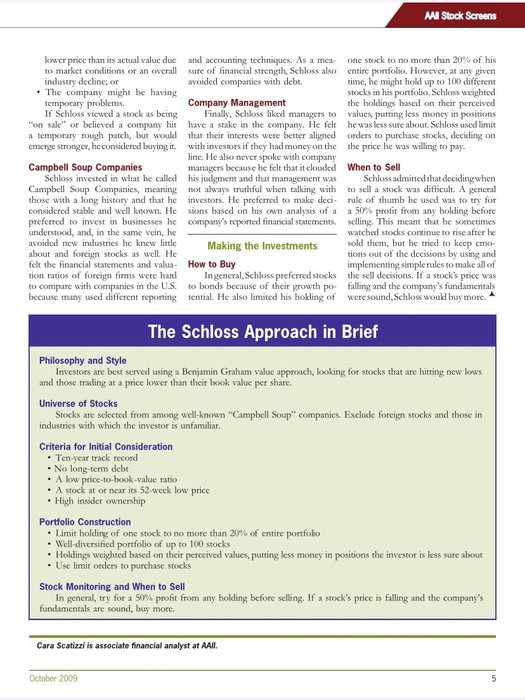Sublime
An inspiration engine for ideas
For the defensive investor who required assistance, Graham originally recommended professional investment advisers who rely on “normal investment experience for their results . . . and who make no claim to being brilliant [but] pride themselves on being careful, conservative, and competent . . . whose chief value to their clients is in shielding
... See moreJohn C. Bogle • The Little Book of Common Sense Investing: The Only Way to Guarantee Your Fair Share of Stock Market Returns (Little Books. Big Profits)
Benjamin Graham • The Intelligent Investor Rev Ed.: The Definitive Book on Value Investing
Picking a stock depended not on the whim of the crowd, but on the facts. And Buffett took this to heart, partly because he saw Graham in idealized terms—as a “hero,” like his father.39 Graham had a similar effect on others.
Roger Lowenstein • Buffett: The Making of an American Capitalist
An elementary requirement for the intelligent investor is an ability to resist the blandishments of salesmen offering new common-stock issues during bull markets.
Benjamin Graham • The Intelligent Investor, Rev. Ed (Collins Business Essentials)
Notes towards becoming a better investor
kaiton • 33 cards



